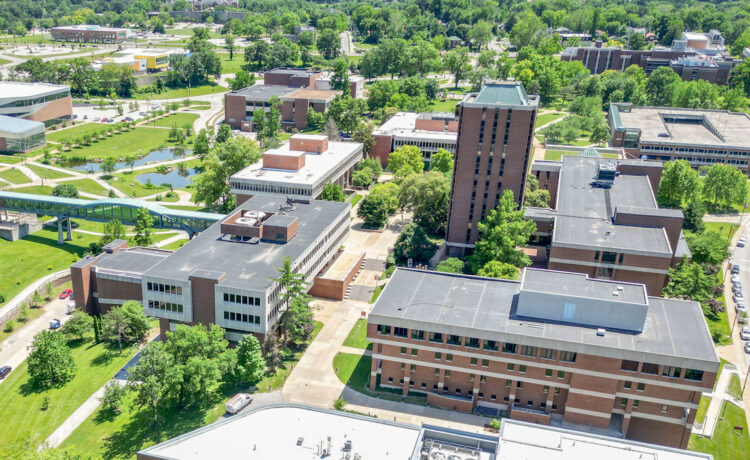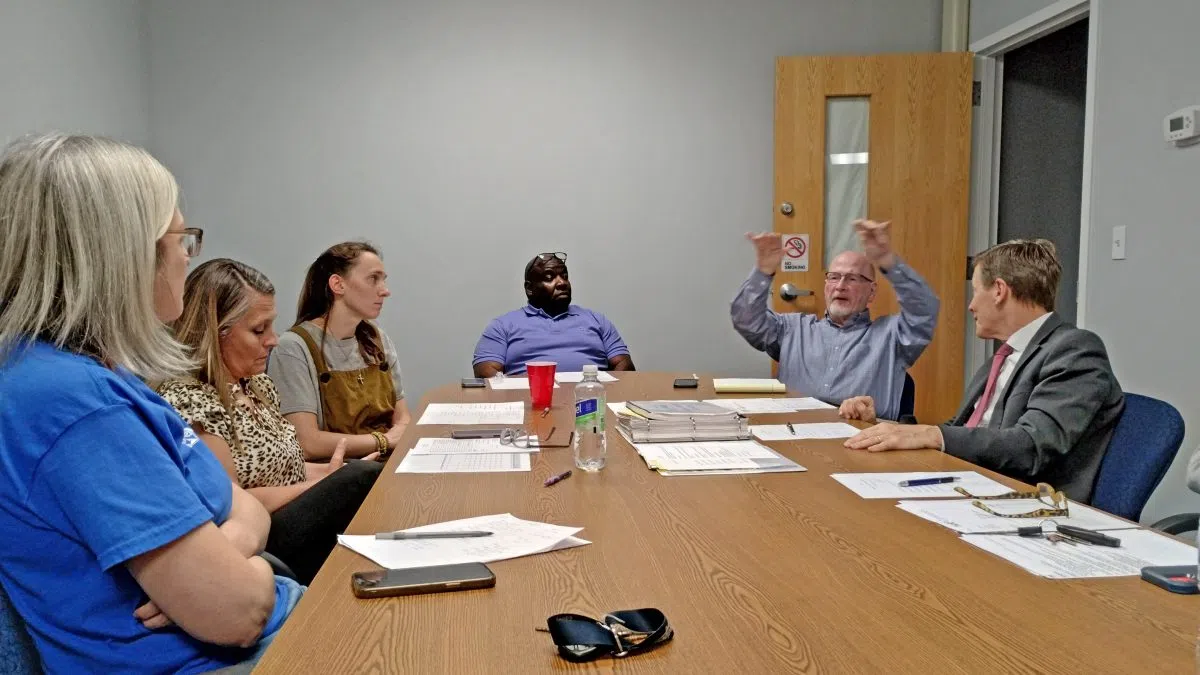State of Missouri makes significant investments in new academic programs and ongoing campus transformation at UMSL
Capital funding will support a new on-campus engineering program, plus workforce and business innovation centers.
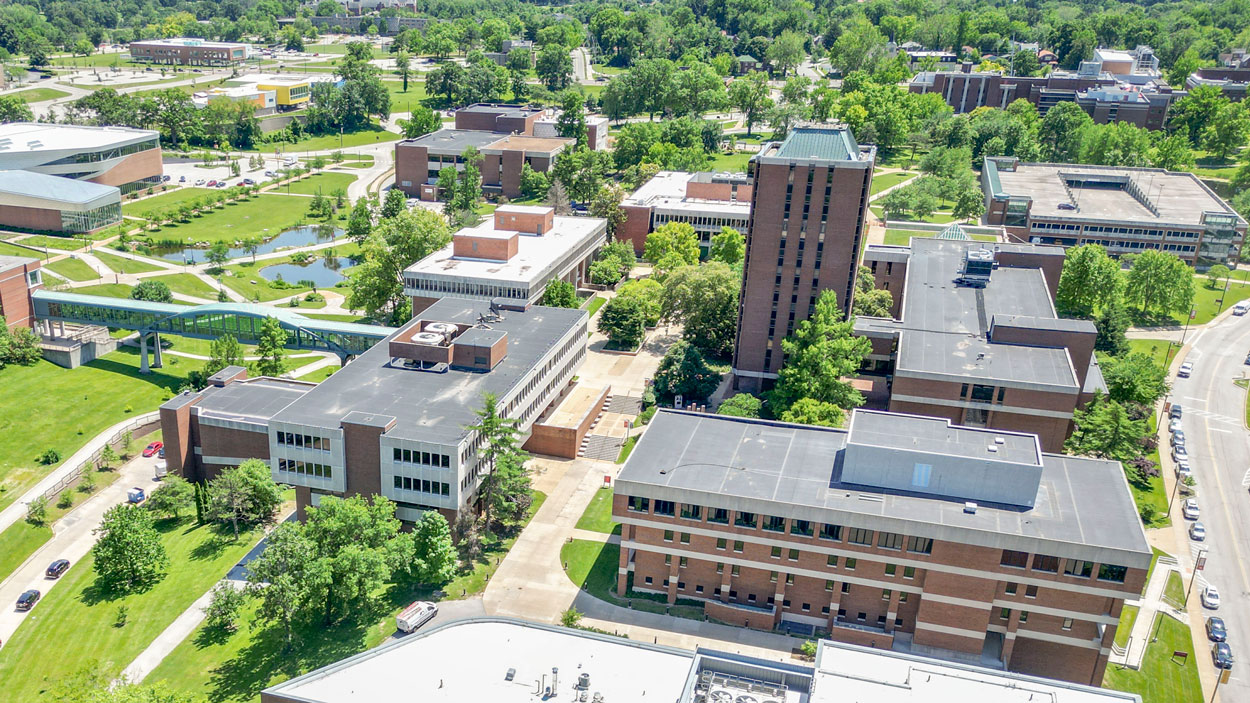
Missouri’s Fiscal Year 2025 budget, signed into law this week by Missouri Gov. Mike Parson, includes $20 million toward UMSL’s ongoing Transform UMSL Initiative to reimagine the campus, including a consolidated academic core north of Natural Bridge Road. (Drone photo by Derik Holtmann)
This week, Missouri Gov. Mike Parson signed the state’s Fiscal Year 2025 budget, which includes more than $36 million in capital funding for the University of Missouri–St. Louis.
The budget calls for $15 million in capital funding to support the launch of the university’s new School of Engineering, as well as $20 million in new American Rescue Plan Act funding to continue UMSL’s Transform UMSL initiative, the university’s first step in realizing its Campus Master Plan, and capital funding to renovate spaces for the UMSL Entrepreneurship and Innovation Center and for the university’s Advanced Workforce Center.
“We are grateful to Gov. Parson and other elected officials in Jefferson City for their continued support of our work and mission,” Chancellor Kristin Sobolik said. “We want to especially thank Missouri Sen. Brian Williams, Speaker of the House Dean Plocher, other members of the St. Louis legislative delegation, the University of Missouri Board of Curators and President Mun Choi for recognizing the vital role UMSL plays within our region, and our ability to unlock access and opportunity for students of every background and prepare them for success in the changing workforce.”
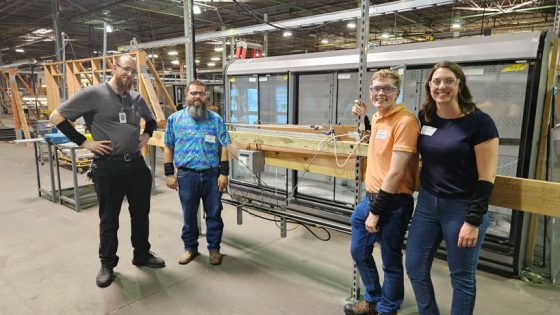
Missouri’s new budget includes a $15 million capital investment to help UMSL build a School of Engineering that will operate alongside the university’s joint undergraduate engineering program with Washington University. UMSL is taking steps to meet the need for more engineers in the local workforce. (File photo)
The Transform UMSL initiative is a multiyear effort to reimagine and redefine the university’s campus with more than $110 million in strategic investments and renovations to enhance the experience of future students. The initiative is focused on consolidating the academic core north of Natural Bridge Road with a new annex to the Social Sciences and Business Building that makes room for the College of Education and Pierre Laclede Honors College to relocate from South Campus, improvements to University Libraries and the creation of the new Richter Family Welcome and Alumni Center, among other projects.
The state had previously directed $40 million in ARPA funding to help launch the initiative in FY 2023 and directed $20 million toward it in last year’s state budget. The university has been working to raise the remaining funds needed through private donations.
To help meet Missouri’s growing demand for engineering talent, UMSL envisioned a campus-based School of Engineering that will expand upon engineering programming currently offered by the university’s 30-year joint undergraduate engineering program with Washington University. The FY 2025 budget contains funding for the planning, design and construction of dedicated lab spaces and other facilities to support new on-campus engineering programs. Local business leaders aligned with Greater St. Louis Inc. and the Regional Business Council, as well as top employers such as Ameren, Boeing, Emerson, Nidec and Thermo Fisher Scientific helped advocate in support of the engineering funding.
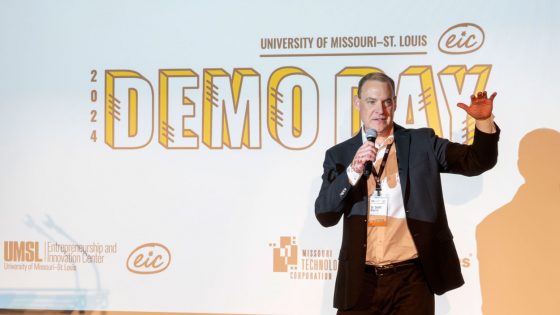
UMSL Entrepreneurship and Innovation Center Director Scott Morris speaks at the Anchor Accelerator Demo Day in May. The center is slated to receive $1 million in funding through the MoExcels Workforce Initiative. (Photo by Derik Holtmann)
UMSL has also committed to supporting new business development in recent years. The state budget includes $1 million in capital funding to enhance UMSL’s Entrepreneurship and Innovation Center space in the building it shares with the UMSL Police Department adjacent to the UMSL North MetroLink station. Additionally, $675,000 is being directed toward UMSL’s Advanced Workforce Center.
Those are the latest UMSL beneficiaries of funding from the MoExcels Workforce Initiative, one of the signature programs Parson has championed during his tenure as governor. MoExcels was created to facilitate the development and expansion of employer-driven education and training programs as well as initiatives to substantially increase educational attainment.
UMSL has previously received MoExcels funding to support the renovation and expansion of its Nursing Simulation Laboratories in Seton Center Hall and the creation of its Geospatial Advanced Technology Lab in Benton Hall.
“Throughout his tenure as governor, Mike Parson has supported historic funding for higher education and workforce initiatives,” Sobolik said, “and the University of Missouri–St. Louis has benefitted greatly from that support as we evolve to meet the changing needs of our students and our community.”

